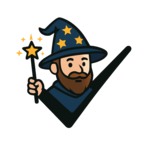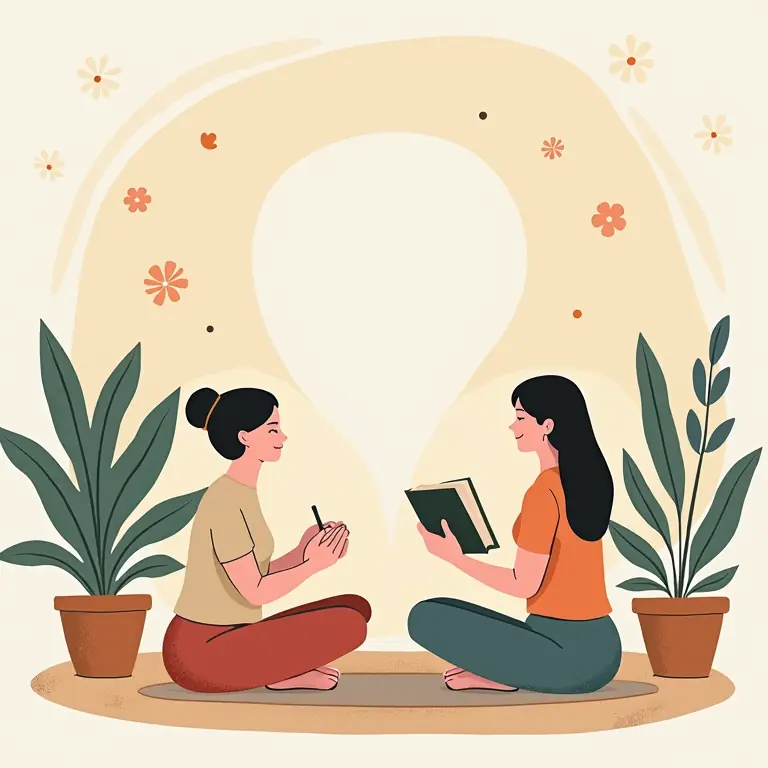Decode Your Downtime: A Friendly Guide to Mindful Hobby Selection
In our hyper-connected, always-on world, the concept of downtime often feels… guilt-inducing. We’re conditioned to believe productivity equals worth, and leisure can seem like a luxury we haven’t earned. But what if I told you that intentionally chosen downtime, filled with fulfilling hobbies, isn’t just *okay* – it’s essential for well-being, creativity, and even professional success? This guide will help you decode your downtime, identify hobbies that truly resonate with you, and build a more balanced, joyful life.
The Importance of Downtime: Beyond Just ‘Relaxing’
Let’s dispel a myth: downtime isn’t just about vegging out on the couch (though sometimes, that’s perfectly valid!). True downtime allows your brain to rest, recharge, and consolidate information. It’s when our brains switch from the ‘default mode network’ (task-focused thinking) to a more creative, introspective state. This is where problem-solving happens, new ideas are born, and emotional regulation improves. Without sufficient downtime, we risk burnout, decreased cognitive function, and increased stress levels.
Think of it like a phone battery. Constant use drains it, and it needs time to recharge. Similarly, our mental and emotional batteries need regular replenishment. Hobbies are one of the most effective ways to do this – provided they’re the right hobbies for you. Simply filling time with mindless scrolling won’t offer the same benefits as engaging in an activity that genuinely captivates and challenges you.
Why Mindful Hobby Selection Matters
Not all hobbies are created equal. Choosing a hobby solely based on trends, social pressure, or what you *think* you *should* enjoy is a recipe for frustration. A mindful approach to hobby selection involves understanding your values, interests, and needs. It’s about finding activities that align with who you are, not who you believe you should be.
Here’s why mindful selection is crucial:
- Increased Engagement: When you genuinely enjoy an activity, you’re more likely to stick with it, reap its benefits, and experience flow – that state of complete absorption where time seems to disappear.
- Enhanced Well-being: Hobbies can provide a sense of accomplishment, reduce stress, boost self-esteem, and foster social connection.
- Personal Growth: Learning new skills and challenging yourself through hobbies can expand your horizons and unlock hidden potential.
- Improved Cognitive Function: Many hobbies, like puzzles, music, or learning a new language, stimulate brain activity and improve cognitive skills.
Step 1: Self-Reflection – What Truly Sparks Your Interest?
Before diving into a list of potential hobbies, take some time for honest self-reflection. Ask yourself these questions:
- What did you enjoy as a child? Often, our childhood passions hold clues to our innate interests. Did you love drawing, building things, reading, playing music, or exploring nature?
- What topics do you find yourself drawn to? What do you read about, watch documentaries about, or spend hours researching online?
- What skills have you always wanted to learn? Is there a particular craft, language, or instrument you’ve always been curious about?
- What activities make you feel energized, not drained? Pay attention to how different activities affect your energy levels.
- What are your values? Do you value creativity, physical activity, intellectual stimulation, helping others, or connecting with nature? Choose hobbies that align with your values.
Don’t censor yourself! Write down *everything* that comes to mind, even if it seems silly or impractical. This is a brainstorming session, not a commitment.
Step 2: Exploring Hobby Categories – A World of Possibilities
Now that you’ve done some self-reflection, let’s explore some broad hobby categories. This isn’t an exhaustive list, but it’s a good starting point.
- Creative Arts: Painting, drawing, sculpting, writing, poetry, photography, digital art, calligraphy, graphic design.
- Performing Arts: Music (playing an instrument, singing, composing), acting, dancing, improv, storytelling.
- Crafts & DIY: Knitting, crocheting, sewing, woodworking, jewelry making, pottery, candle making, soap making, upcycling, home renovation.
- Collecting: Stamps, coins, antiques, books, art, vintage toys, trading cards.
- Games & Puzzles: Board games, card games, video games, jigsaw puzzles, crossword puzzles, Sudoku, escape rooms.
- Outdoor Activities: Hiking, biking, camping, gardening, birdwatching, fishing, kayaking, rock climbing.
- Sports & Fitness: Running, swimming, yoga, Pilates, team sports, martial arts, weightlifting.
- Learning & Education: Learning a new language, taking online courses, reading, studying history, astronomy, philosophy.
- Culinary Arts: Cooking, baking, brewing beer, making wine, mixology.
- Volunteering & Community Involvement: Giving back to your community through volunteering or joining a local organization.
Step 3: Trying Things Out – Experimentation is Key
The best way to find a hobby you love is to try different things. Don’t be afraid to step outside your comfort zone and experiment. Start small and don’t invest a lot of money upfront. Many hobbies have introductory classes or workshops available. You can also find online tutorials and resources to get started.
Here are some tips for experimentation:
- Take a class: A structured class can provide guidance and support.
- Join a group: Connecting with others who share your interests can make the experience more enjoyable and motivating.
- Start with a free trial: Many online platforms offer free trials for courses or subscriptions.
- Borrow or rent equipment: Before investing in expensive equipment, see if you can borrow or rent it first.
- Set realistic expectations: Don’t expect to be an expert overnight. Learning takes time and practice.
Step 4: Evaluating Your Experience – Is it a Good Fit?
After trying a new hobby, take some time to evaluate your experience. Ask yourself these questions:
- Did you enjoy it? This is the most important question!
- Did it feel challenging, but not overwhelming? A good hobby should stretch you, but not leave you feeling frustrated or discouraged.
- Did it fit into your lifestyle? Consider the time commitment, cost, and space requirements.
- Did it align with your values? Does the hobby feel meaningful and fulfilling?
- Would you continue doing it? If the answer is yes, you’ve likely found a hobby worth pursuing.
It’s okay if a hobby doesn’t click. Don’t force it. Simply move on to something else. The goal is to find activities that bring you joy and enrich your life. Sometimes, you’ll discover a passion you never knew you had. Sometimes, it’s about finding a relaxing distraction.

The Role of Technology: Enhancing, Not Replacing, Hobbies
Technology can be a valuable tool for pursuing hobbies, but it’s important to use it mindfully. While online resources and apps can provide access to information, tutorials, and communities, they shouldn’t replace the hands-on experience of engaging in a hobby. Be mindful of screen time and avoid getting sucked into endless scrolling or social media comparisons.
For example, if you’re interested in photography, take an online course to learn the basics, but then go out and practice taking photos. If you’re learning a new language, use a language learning app, but also find opportunities to practice speaking with native speakers.
You may find smart home automation helpful in creating a dedicated space for your hobbies, minimizing distractions and maximizing comfort.
Hobbies and Mental Health: A Synergistic Relationship
Hobbies aren’t just about having fun; they’re also a powerful tool for improving mental health. Engaging in a hobby can:
- Reduce stress and anxiety: Hobbies provide a distraction from worries and allow you to focus on something enjoyable.
- Boost mood: Hobbies release endorphins, which have mood-boosting effects.
- Increase self-esteem: Mastering a new skill or creating something tangible can boost your confidence.
- Combat loneliness: Joining a hobby group can provide social connection and support.
- Provide a sense of purpose: Hobbies can give you something to look forward to and a sense of accomplishment.
If you’re struggling with mental health, hobbies can be a valuable part of your self-care routine. However, they shouldn’t be a substitute for professional help. If you’re feeling overwhelmed or depressed, please reach out to a mental health professional.
Downtime & Social Connection
Hobbies aren’t always solitary pursuits. Many hobbies are best enjoyed with others. Consider joining a club, taking a class, or simply inviting friends to participate with you. Sharing your hobbies can strengthen relationships, foster a sense of community, and provide opportunities for learning and growth.
Even solitary hobbies can be shared indirectly. Show off your creations, share your progress, or write about your experiences. Connecting with others who share your interests can be incredibly rewarding.
The Power of “Downtime Activities” in Role-Playing Games
If you enjoy tabletop role-playing games like Dungeons & Dragons, you’re likely familiar with the concept of “downtime activities.” These are actions your characters take between adventures to develop their skills, build relationships, and prepare for future challenges. The principles of mindful hobby selection apply here too!
Thinking about downtime activities in a game can inspire you to consider how you spend your *own* downtime. What skills do *you* want to develop? What relationships do *you* want to nurture? What preparations can *you* make for the challenges ahead?
Beyond the Hobby: Building a Balanced Life
Mindful hobby selection is just one piece of the puzzle when it comes to creating a balanced life. It’s also important to prioritize self-care, set boundaries, and cultivate healthy habits. Consider exploring resources on behaviour design to build routines that support your well-being.
Remember, downtime isn’t a reward for being productive; it’s an essential component of a fulfilling life. By intentionally choosing hobbies that resonate with you, you can unlock your creativity, reduce stress, and enhance your overall well-being.
Resources for Finding Hobbies
- Meetup.com: Find local groups based on your interests.
- Eventbrite: Discover workshops, classes, and events.
- Skillshare & Udemy: Online learning platforms with a wide range of courses.
- Local Community Centers: Often offer affordable classes and activities.
- Pinterest: A great source of inspiration for DIY projects and crafts.
- YouTube: Tutorials for almost any hobby imaginable.
Final Thoughts: Embrace the Joy of Leisure
In a world that often equates worth with productivity, it’s radical to prioritize leisure. But remember, you deserve to enjoy your downtime. Embrace the joy of exploring your interests, learning new skills, and simply being present in the moment. Your mind, body, and soul will thank you for it. For further exploration on maximizing your personal time, check out additional insights into mindful downtime.


Discussion about this post